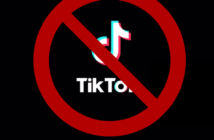[tribulant_slideshow gallery_id=”316″]
How can a company’s stock price drop by more than $8,000 in less than a year? How can the same company lose over $150 million within several months? The stock price of Helios and Matheson Analytics Inc., a data firm, dropped from $8,225 to $0.02, with the record low for the company of $0.02 being reached Aug. 24, 2018. The company has lost an average of more than $20 million in cash each month from September 2018 to April 2018, according to the regulatory filing of an 8-K report, filed in May 2018.
The company had a large cash deficit each month that sparked concerns from independent auditors. In April 2018, Helios and Matheson’s independent auditors expressed substantial doubt of the company’s ability to continue operations, which can affect the company’s ability to obtain financing in the future, according to MarketWatch.
The drop in stock price, the enormous cash outflows and the doubt of the company’s ability to continue operations are speculated to be the result of a recent company that Helios and Matheson acquired known as MoviePass.
However, the CEO of Helios and Matheson, Theodore Farnsworth was supportive of the new acquisition and remained supportive of MoviePass at that time of the fillings despite the $150 million in cash that MoviePass was burning through.
“I’m the biggest fan because I see what’s going on from the inside and what Mitch [CEO of Movie Pass] is creating here,” said Farnsworth after the filings, according to Business Insider.
Movie Pass is a subscription service that allows subscribers to attend movie theater showings for a monthly fee. In its beginning years, Movie Pass allowed users to see up to a movie a day, with certain restrictions, and the subscription fee ranged from $14.95 to nearly $50 a month. However, after Helios and Matheson acquired the company in August 2017, the monthly fee dropped to $9.95, and Movie Pass still allowed moviegoers to see one movie a day at movie theaters around the country. So, essentially, subscribers could have seen up to 30 movies in a month for less than the average price of one movie ticket. This drop in price led to a boost in subscribers. There were 20,000 subscribers in December 2017, before the price drop, then the subscribers increased to 150,000 in the month of the price drop and then to more than 2 million subscribers in March of 2018, according to Statistics. However, despite the increase in subscribers, the business model of MoviePass appeared to be financially unsustainable since MoviePass payed the full price of every subscribers’ tickets. Therefore, if a subscriber buys more than two tickets a month, the company loses money. This financial unsustainable is evidenced by the parent company spending millions of dollars each month to subsidize MoviePass. d in stock price dropped and also resulted in many changes, restrictions and malfunctions to the services, such as a service outage for a day due to company’s cash deficit, which caused numerous backlashes and negative press against the company.
The most recent change that caused major backlash was in August when the company implemented that subscribers would no longer be able to see up to 30 movies a month, but instead only three.
However, not all subscription services that allow users to see movies at a theater are this unprofitable and unreliable. In fact, AMC launched their own subscription service, called Stubs A-list, a few months ago to rival the MoviePass. The subscription service launched in June and is an expansion to the AMC’s current Stubs reward program, according to USA Today. The service allows subscribers to attend up to three movies a week for $19.95 a month.
MoviePass attempted to combat AMC’s new subscription service on Twitter. MoviePass stated that the AMC’s Stubs A-List service is inferior to their own by detailing that AMC only offers “twice the price for 1/4 the theater network and 60% fewer movies.”
Yet, AMC’s service seems to include more benefits than Movie Pass’s service. The movie selections include 3-D and IMAX showings, unlike MoviePass, which only allows 2-D showings. Also, AMC’s program, having the benefits of Stubs Premiere, provides free upgrades on certain concession stand items, provides the opportunity to purchase tickets online with no extra fees and provides express service at the box office. AMC also allows consumers to see more than one movie within a day. MoviePass on the other hand, does not offer any of these features.
AMC got more than 250,000 subscribers within two months of the service launch, and the business model of service seems more sustainable than MoviePass’s business model, especially since AMC gets to direct more consumers to their movie theaters, thus increasing revenues at the concessions, where movie theaters make most of their profit. According to Time, movies make about 85 percent profits on concession items, such as popcorn and candy.
With AMC realizing their own service, along with other subscription services, such as Sinemia out there, MoviePass has more competition now than ever. And with Movie Pass’s most recent malfunctions and unwanted changes, subscribers may seek to go somewhere else. Therefore, the fate of this service is unpredictable.





